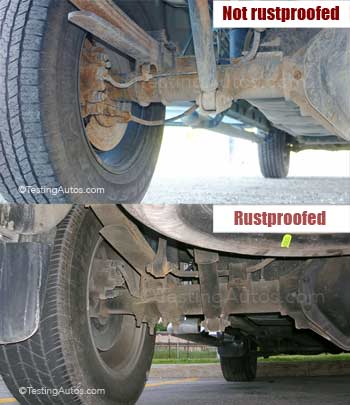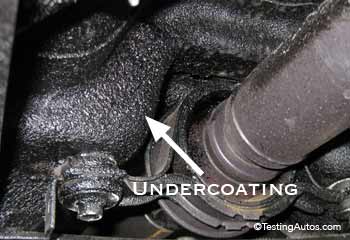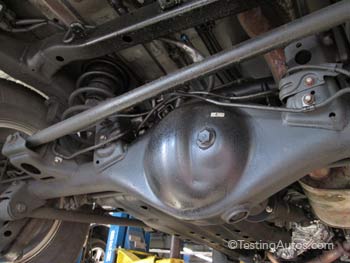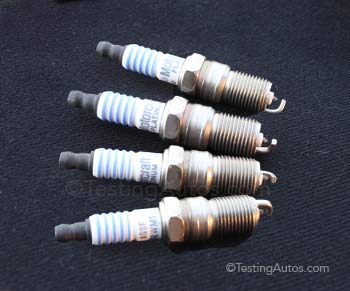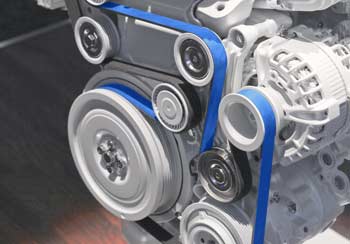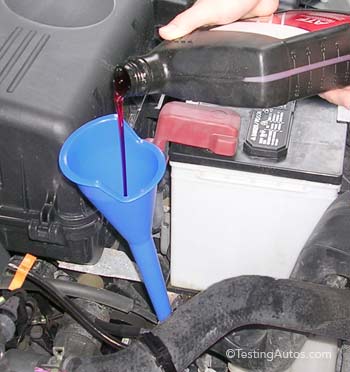Pros and cons of rustproofing your vehicle
Check out any older car that has been driven in the Salt Belt in winter months, and you will find some rust on body panels or chassis components underneath.The one major factor that causes the rust is the road salt. In the Salt Belt, it's used to melt the ice and snow during winter.
The rust ruins not only body panels, but mechanical parts and metal lines as well. Examples include rotten frames and subframes, broken coil springs, leaking power steering and brake lines.
Since about 2010-2012, car makers use better metals and coatings, but no car is immune to rust. The deadly mix of moisture and salt accumulates in hidden areas and destroys metal parts and body panels slowly from the inside out.
What is rustproofing?
Many car dealers and independent auto repair shops offer different types of rustproofing that is intended to protect some parts and slow down the corrosion process. Typically, they spray a gel-like oil/wax mix or an oily solution on the undercarriage and inside the body panels to repel moisture.Some shops also offer rocker guard undercoating, which is spraying the underneath of the car with a black tar-like substance that becomes hardened when dries. What are the pros and cons of rustproofing your vehicle?
Pros:
- Rustproofed parts will be better protected from corrosion.
- The vehicle will last longer in the Salt Belt.
- Better resale value of the vehicle.
- Peace of mind knowing that important parts such as brake lines are protected and are less likely to fail prematurely making the vehicle unsafe.
- Rustproofing may help prevent some steering/suspension repairs that are normally caused by corrosion.
Cons:
- Initial cost.
- Some parts such as brake lines and power steering lines are not always possible to rustproof completely from all sides and angles. Some areas might be missed.
- Need to recheck/reapply rustproofing every year or two.
- If the vehicle is rustproofed with an oil-based product, there will be a constant smell of oil coming from the vehicle.
- When rustproofing with an oil-based product, rubber parts and door seals tend to swell up and it's messy to work with underneath parts.
How much does it cost to rust proof your car?
Doing rustproofing in an independent shop will cost from $89 to $280. Car dealers typically charge more.Is rustproofing of a new vehicle required for warranty?
We heard from car owners that dealers pressured them into buying rustproofing, saying that the factory warranty will be void if it's not done. As far as we know, this is not true. If you want to confirm, you can always call the car manufacturer customer service number.Rustproofing options
There are several types of rustproofing products, and many disagree which product is better. To hear different perspectives, we spoke to two car enthusiasts. One said that he gets his 8-year old truck (in the photo) oil sprayed every other year, because the liquid oil-type product penetrates better into all nooks and crannies.Another owner said that he hasn't sprayed his car yet, because it's only three years old. He will get it done with the gel-like oil/wax spray later, if he notices signs of rust.
In our opinion, a tar-like undercoating works well on open areas that get splashed on by water and sand from under the wheels. The gel-like oil/wax non-dripping spray is ideal to cover most of the undercarriage, including inside the fenders, strut towers, and the engine bay metal, although it will be washed off in the areas around the wheels. It also covers cracks in the undercoating well. The oil-like spray penetrates well inside the frame, rocker panels, load-bearing beams, inside the doors and other hidden areas. However, the oily spray will drip, and it can cause some rubber and plastic parts to swell up.
Some rustproofing shops drill holes in a few places in a car to be able to spray some body panels from the inside. We prefer rust proofing without drilling holes, as over time, the edges of the holes tend to rust.
How often should you rust proof your vehicle?
Doing it every year is probably too much. We noticed that cars that are sprayed every year tend to have a noticeable oil smell inside. Modern cars with complex transmissions and small turbocharged engines are unlikely to last more than 15-18 years anyway.Advertisement
Should you wash your car before rust proofing? Yes, and give it some time to dry. It's a good idea to run the vehicle through the car wash that washes underneath every Spring, to wash off all the salt. The best time to rust proof is in the Fall.
What about electronic rust-protection modules? It's a simple electric module that is powered by a car battery and is connected to two metal bars attached to the car body. We have our scepticism about the effectiveness of these modules. Opinions about them online and on Youtube are also mixed. If you want to try, we found rust protection module kits sold on eBay for $90-$150. An electronic rust module is easy to install.
